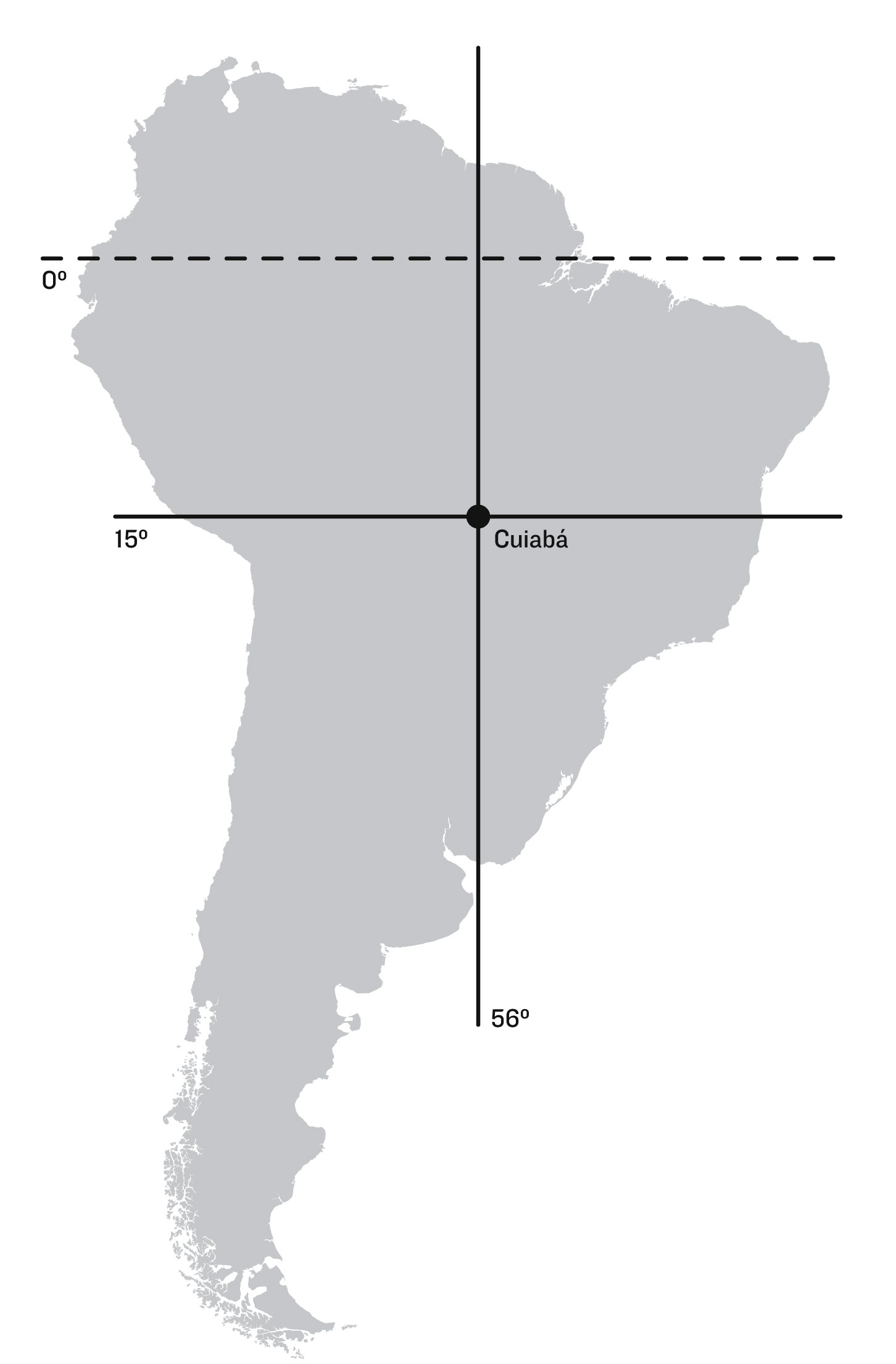An Indian will descend from a colorful and bright star
From a star that will come in a dizzying speed
And will land in the heart of the Southern Hemisphere
In America, in a clear instant
(…)
And what, in this moment, will be revealed to the people
Will surprise everyone, not for being exotic
But due to the fact that it could have always been occult
When it would have been the obvious
(Caetano Veloso)
Here we have, in suspended time and space, faced with these indigenous peoples, here represented by an Indian, an exterminated being that returns in the form of knowledge and light. What does he reveal to us, what is this obviousness that was always hidden? Starting from the land of caboclos, the cerrado, the waters, the geodesic heart of South America, which is also the land of the monoculture of soybean, of depleted soil, of large farms of cattle pastures, of vanished species, of Indians forever threatened with genocide, of forgotten knowledge, we intend to discuss extinction. This word, often seen in reports on the present and future as reality or imminent threat, should be understood as anchor to an approach which understands it in a complex manner and which refuses an overspecialization that contrasts development with preservation, art with science and culture with nature.
Cuiabá, with its surrounding areas, appears here as a symbolic place and a unifying hub for a series of issues that drive the poetic and political studies of the 32nd Bienal de São Paulo. Starting with the history of this land and its important natural and cultural heritage, we intend to discuss the ideas of extinction and preservation in an interdisciplinary manner, employing the cerrado, the traditions of the indigenous peoples and the legacy of a city like Cuiabá as references. And not just because it constitutes a key biome for understanding the impact of climate change, on a global scale, and the fragility which threatens the great biological diversity, the cerrado is the place where water is born and the territory where important indigenous peoples and traditional communities live or used to live, an emblematic locale for questioning the forms of human occupation and the natural environment. Though having suffered a history of extraction and spoliation, from the era of prospecting to the soybean, from deforestation to extermination, this land resists in its potential to create and breed. As such, we understand that these themes decisively inform the most urgent debates that rage on in the present and which should not be relegated to niches of alienating specialization, as if issues related to nature had nothing to do with culture, as if science were not intimately connected to art and as if social life were antagonistic to natural life. With this series of encounters and debates, we intend to bring to Cuiabá different outlooks on the themes of extinction and preservation, incorporating points of view and actions that are artistic, scientific, poetic and political in nature.
The scheduled encounters seek to bring together agents who operate via different methods, who are able to share their experiences and engage in dialogue. Beyond simply identifying the shape of the problems discussed and debating a contemporary panorama of socio-environmental issues, these encounters intend to delve into propositions for the coming years.
Cuiabá Study Days: Performative encounter – “Pact with the future”
Saturday, May 21, 4 PM
Instituto de Linguagens UFMT – second floor, room M
Av. Fernando Correa da Costa, nº 2367, Bairro Boa Esperança, Cuiabá – MT, Brazil
Starting from Cuiabá and its natural and cultural heritage, the 32nd Bienal de São Paulo invites you to discuss extinction, as a reality or imminent threat to the cerrado and its indigenous peoples. Understanding culture as a socio-environmental issue, the debates in this activity seek to consider what is possible and necessary to create other worlds and futures.
Participants
Actions by
Bené Fonteles, artist
Joca Reiners Terron, poet-writer
Tetê Espíndola, singer-songwriter
Featuring
Alvaro Tukano, Gabi Ngcobo, Larissa Silva Freire, Ludmila Brandão, Mario Friedlander, Jochen Volz, Júlia Rebouças, Lars Bang Larsen, Naine Terena, Pedro de Niemeyer Cesarino, Rodrigo Nunes and Sofía Olascoaga.
